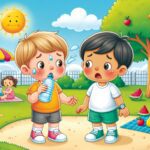Understanding hydration guidelines for infants and toddlers is crucial for their health and development. As parents and caregivers, ensuring that our little ones receive the right amount of fluids throughout the day is a key aspect of their care. This article delves into the significance of hydration, how much they need, and practical tips to keep them hydrated.
Why Hydration is Vital for Infants and Toddlers
Water plays a pivotal role in the bodily functions of infants and toddlers, from aiding digestion to regulating body temperature. Dehydration can lead to serious health issues, making it imperative to follow proper hydration guidelines for infants and toddlers. The younger the child, the higher their risk of dehydration, primarily because of their size and the rapid rate at which they can lose fluids.
Moreover, infants and toddlers are not always able to communicate their thirst, making it the caregiver’s responsibility to provide them with regular fluid intake. Keeping them hydrated supports their overall well-being, including mental and physical development.
Hydration Guidelines for Infants and Toddlers
The Centers for Disease Control and Prevention (CDC) outlines that infants and toddlers have different hydration needs at various stages of their early life. For infants under 6 months, breast milk or formula provides sufficient hydration. Beyond that, introducing small amounts of water can complement their liquid intake, especially as they start consuming solid foods.
As children grow into toddlers, their need for water increases. A general guideline is approximately 1 to 4 cups of water daily for toddlers, depending on their age, size, and activity level. However, it’s essential to balance their fluid intake with a healthy diet to ensure they’re not filling up on water at the expense of necessary nutrition.
Practical Tips for Keeping Your Child Hydrated
Ensuring your child stays hydrated doesn’t have to be a daunting task. Here are some practical tips:
- Offer water regularly throughout the day, especially in hot weather or after physical activities.
- For toddlers, make hydration fun by using colorful cups or straws.
- Introduce water-rich fruits and vegetables as part of their diet.
- Monitor their urine color; lighter color usually indicates good hydration.
Remember, while water is the best source of hydration, milk and other fluids also contribute to their daily fluid intake. Avoid sugary drinks as they can lead to dental problems and obesity.
In conclusion, following the hydration guidelines for infants and toddlers is essential for their health and development. By understanding their unique needs and incorporating regular fluid intake into their daily routine, you can ensure your little one remains healthy, happy, and hydrated. For more tips on infant and toddler care, explore our articles on safe sleep practices, recognizing signs of developmental delays, and first aid kit essentials for new parents.













